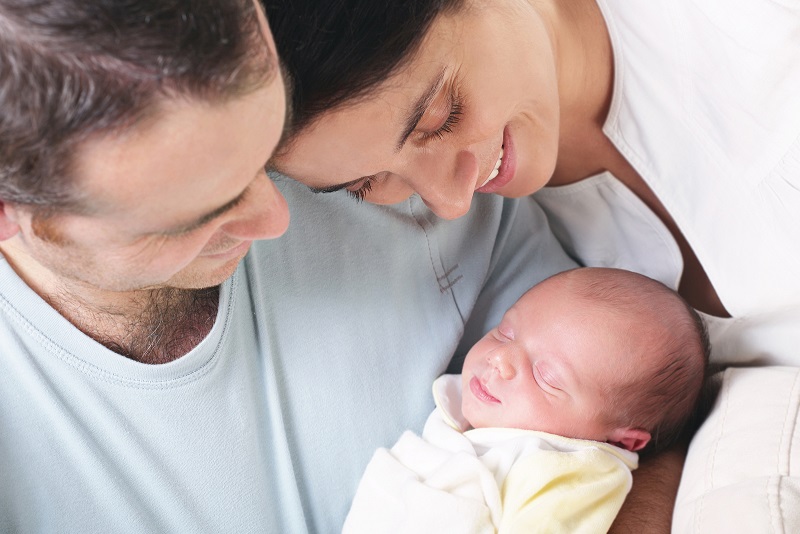FERTILITY AND PREGNANCY
STARTING A FAMILY
 You or your loved one has Crohn’s disease or ulcerative colitis and you want to start a family. Having a baby when you or your partner has IBD can raise many questions; such as If you are a woman, you may wonder if you can get pregnant; if you are a man, you may wonder if you can father a child. What are the health consequences of starting a family? Should you take your meds if you are pregnant? Will your children have Crohn’s or colitis?
You or your loved one has Crohn’s disease or ulcerative colitis and you want to start a family. Having a baby when you or your partner has IBD can raise many questions; such as If you are a woman, you may wonder if you can get pregnant; if you are a man, you may wonder if you can father a child. What are the health consequences of starting a family? Should you take your meds if you are pregnant? Will your children have Crohn’s or colitis?
It is important to know at the outset that most people with IBD are able to have children and raise a family although there can be a few additional challenges.
It is always a good idea to raise any questions or concerns you may have with your clinical team, including your gynaecologist. Medical and surgical treatment can be tailored to suit your own personal circumstances,.
Am I less fertile if I have IBD?
There is no evidence that people with ulcerative colitis are any less fertile than anyone else. Fertility is also normal in people with inactive Crohn’s disease. However, women are slightly less likely to become pregnant if their disease is active.
Men with active Crohn’s disease may have a reduced sperm count.
Malnutrition can have an effect on both male and female fertility – in men due to a reduced sperm count and in women due to stopping of menstrual periods and stopping ovulation. However, these are both reversible upon regaining a healthy nutritional status.
Remember however, that active IBD is NOT an effective contraceptive – precautions will still need to be taken.
What about medications and fertility?
Most medications to treat IBD do not have an effect on fertility. However, sulfasalazine can reduce the sperm count and lead to formation of abnormal sperm. Sperm counts and function return to normal upon stopping the medication, but this takes about three months to occur.
Methotrexate may affect sperm quality. It must not be taken by women who are attempting to get pregnant because of its adverse effects on the growing baby. Methotrexate must be discontinued for at least three months (probably 6 months) before attempting to conceive.
What about surgery and fertility?
Surgery for ulcerative colitis may involve removing the rectum. Because of this, in rare instances, men may become impotent and have problems with ejaculation.
A woman who has surgery in the pelvic area may develop scarring or adhesions involving the fallopian tubes making it more difficult to conceive.
Pregnancy
Any form of contraception may be used by people with IBD. The oral contraceptive pill (OCP) will not interfere with medications taken for IBD. However, occasionally medications taken for IBD may interfere with the OCP (e.g. some antibiotics). Sudden diarrhoeal illness may be associated with reduced effectiveness of the OCP. Read More about Pregnancy
Childbirth and afterwards
A woman with Crohn’s disease, who has an abscess or fistula around the rectum, or previous severe Crohn’s disease around the anus, would be advised to have a caesarean section. In most other cases, normal vaginal deliveries are recommended and caesarean sections are performed for obstetric reasons only.
Can I breastfeed?
If the condition is active at the time of delivery, not enough breast milk may be produced. If a woman takes certain medications, breastfeeding should be avoided. These are methotrexate, anti diarrhoeals and antibiotics.
However, 5-ASA’s, steroids, biologicals and immunosuppressive medications (azathioprine and mercaptopurine) are compatible with breastfeeding.
If active Crohn’s disease or ulcerative colitis complicates one pregnancy, are future pregnancies likely to be affected in the same way?
One cannot predict the course or behaviour of IBD. Previous pregnancies do not set a pattern, good or bad, for subsequent pregnancies.
FINALLY
The ability to become pregnant when desired and to raise happy and healthy children are issues many people face. Having IBD adds to the many challenges. However, it can be done and it can be done well.

 You or your loved one has Crohn’s disease or ulcerative colitis and you want to start a family. Having a baby when you or your partner has IBD can raise many questions; such as If you are a woman, you may wonder if you can get pregnant; if you are a man, you may wonder if you can father a child. What are the health consequences of starting a family? Should you take your meds if you are pregnant? Will your children have Crohn’s or colitis?
You or your loved one has Crohn’s disease or ulcerative colitis and you want to start a family. Having a baby when you or your partner has IBD can raise many questions; such as If you are a woman, you may wonder if you can get pregnant; if you are a man, you may wonder if you can father a child. What are the health consequences of starting a family? Should you take your meds if you are pregnant? Will your children have Crohn’s or colitis?

